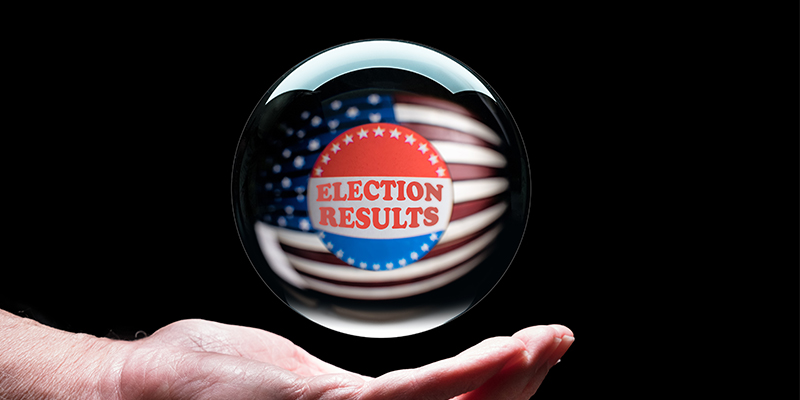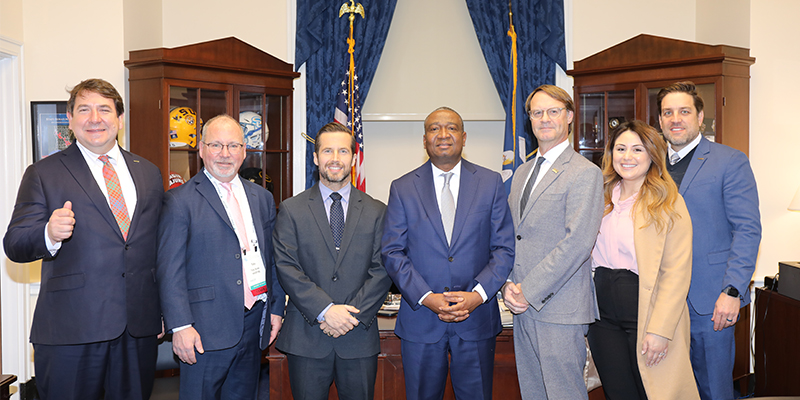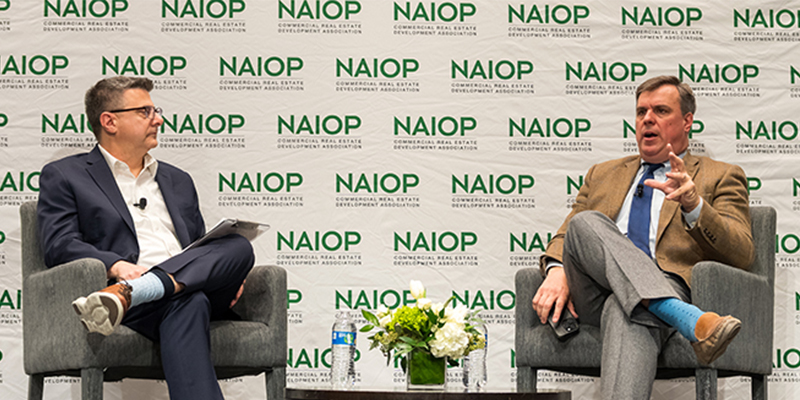Five primary factors will shape this November’s midterm elections. Each has varying degrees of importance, but all solidly affect President Joe Biden’s approval ratings, which influences how people will vote, said Larry Sabato, Ph.D., political prognosticator, professor of politics at the University of Virginia, and founder and director of the University of Virginia Center for Politics, during an exclusive NAIOP members-only webinar this week.
First is Biden’s job approval rating, which has steadily declined since his inauguration in January 2021. Presidential approval provides a sense of where voters stand – even who will turn out on election day and who will not, with those in the “strongly approve” or “strongly disapprove” columns traditionally showing up in greater numbers than those somewhere in the middle. Sabato says that Biden’s job approval rating is a major factor for Democrats who need to show that their party is making the county better.
Second is managing the pandemic, which public health experts agree is going to be a long-term challenge. Third is inflation insanity, and while this cannot be changed directly by Biden or even the chair of the Federal Reserve, it nonetheless has a considerable influence as voters see costs of everyday necessities – food, gas, home heating, rent – rising.
Fourth is Russian President Vladimir Putin’s posed threat toward invading Ukraine. Americans do not want to commit U.S. armed forces to the region, particularly after the disastrous exit from Afghanistan last year, and Biden has not signaled this is in his plans. Fifth is the ongoing investigation into the U.S. Capitol attacks on January 6, 2021, and former President Donald Trump’s role in it. A report from the congressional Select Committee investigating the events is expected in late summer. The report’s findings could shape the return of Trump and former Vice President Mike Pence, who has signaled that he would like to explore a political future, but almost all agree this is an impossibility if Trump is still a guiding force in the Republican party, given the ongoing strife between the two.
Sabato said that the U.S. is extremely polarized, and it’s getting worse, not better. Fifty years ago, it wasn’t unusual for states to split their two Senate seats evenly – one Republican and one Democrat. This gave a state a member of the majority no matter who was in charge. Today, only a handful of states have one senator from each party: Maine, Montana, Pennsylvania, West Virginia and Wisconsin.
Sabato’s infamous “Crystal Ball,” which follows every event in key states that could shape the outcome of the election – indicates there are four key toss-up states that will decide the composition of the Senate. Pennsylvania, Arizona, Nevada and Georgia all have Senate seats that could flip from blue to red during the midterms, although nothing is for certain except “there will be more, caused by something we don’t even know about yet,” Sabato said.
Control of the House of Representatives is expected to return to the Republicans, with Sabato noting that, “a great night for Democrats is to lose only five seats, and a horrible night is if they lose 30 or more – which is not out of the realm of possibility.” From 1960-2020, states including New York, Pennsylvania, Michigan, Illinois and Ohio have reduced their number of seats in the House, while Texas, Florida, California, Arizona, Georgia and Colorado have gained seats. This is shaped by where people want to live, and their ideology is reflected as formerly blue states are strongly reassigned to the red column.
Thirty-six governor races – 20 currently Republican and 16 Democrat – are up for grabs, thanks in part to turnover due to retirements or term limits. Projections include toss ups for Georgia, Pennsylvania, Wisconsin, Kansas, Arizona and Nevada.
Sabato closed with a look ahead to the 2024 presidential election, which is anyone’s guess as neither party has candidates that have emerged as frontrunners. Will Biden run again, as he’s said? Or will he be replaced on the ticket by Vice President Kamala Harris, Transportation Secretary Pete Buttigieg, Senator Corey Booker (N.J.) or another? Trump’s future is as uncertain, given ongoing legal challenges that could prevent him from running. Sabato said Trump is holding off on making any sort of announcement because he doesn’t want challengers – potentially Pence, Florida Governor Ron Desantis, or former South Carolina Governor Nikki Haley, among others – to get in front of him.
Sabato and the University of Virginia Center for Politics publishes Sabato’s Crystal Ball twice weekly, featuring updates on key political races. NAIOP members can access a recording of this exclusive webinar through March 4, 2022.








